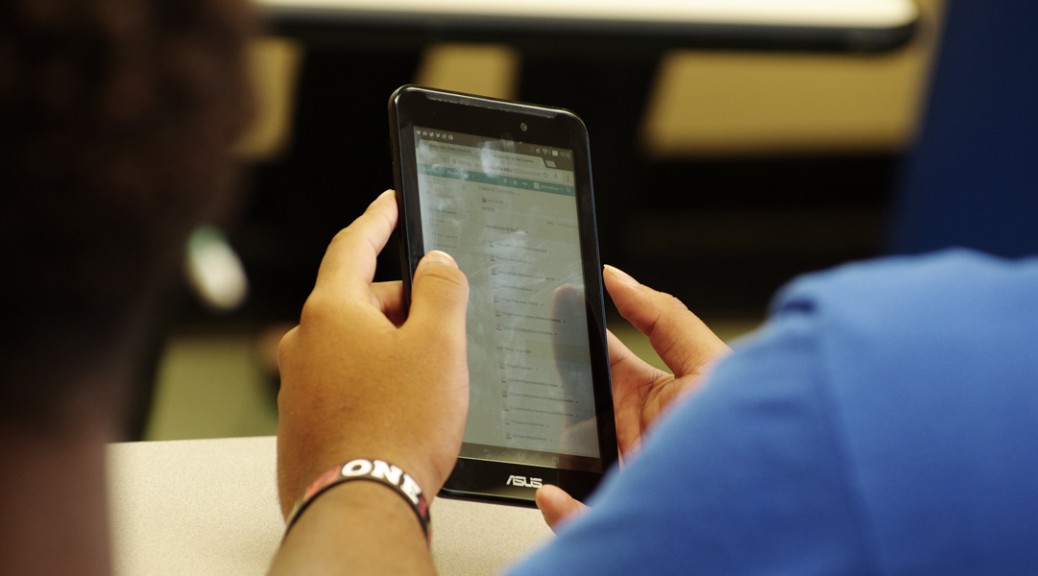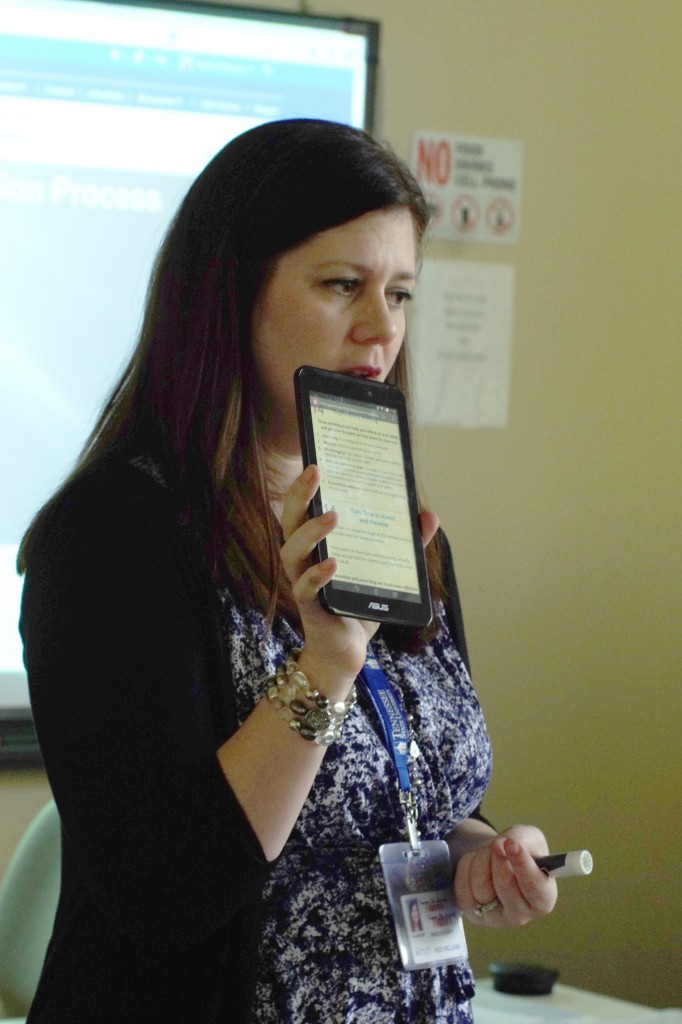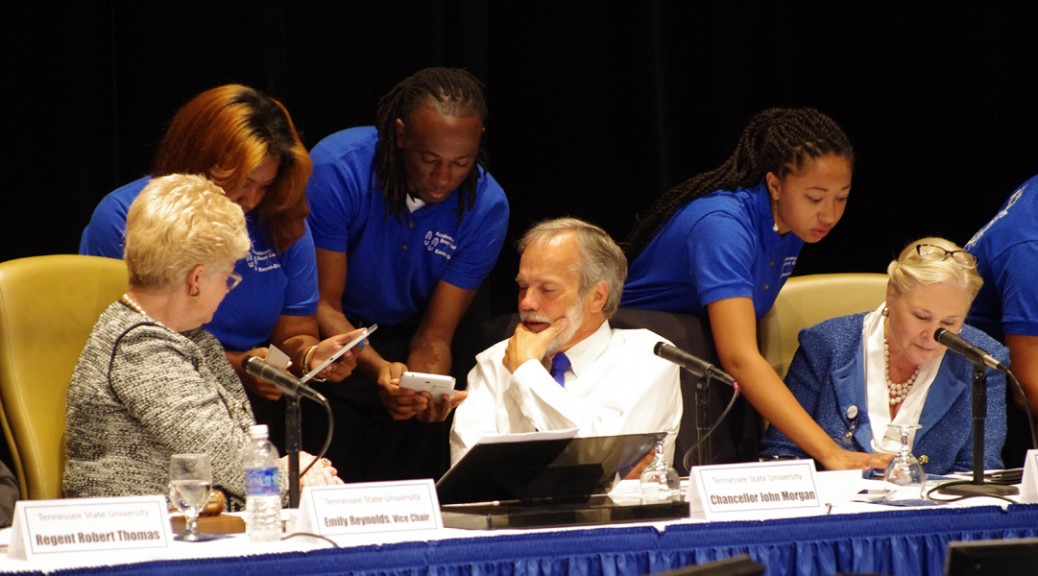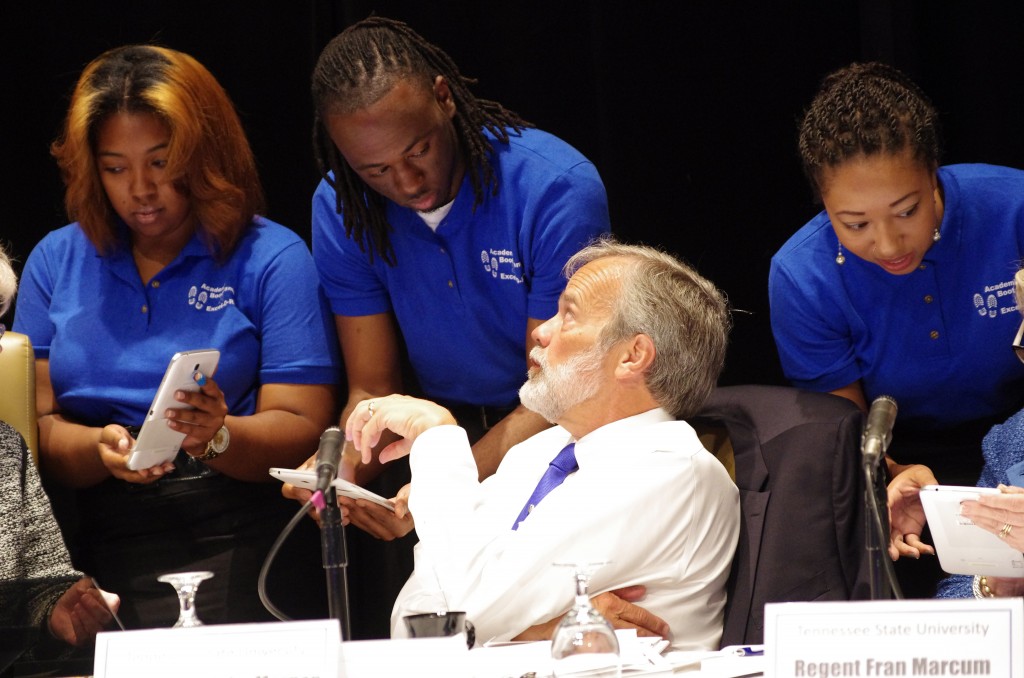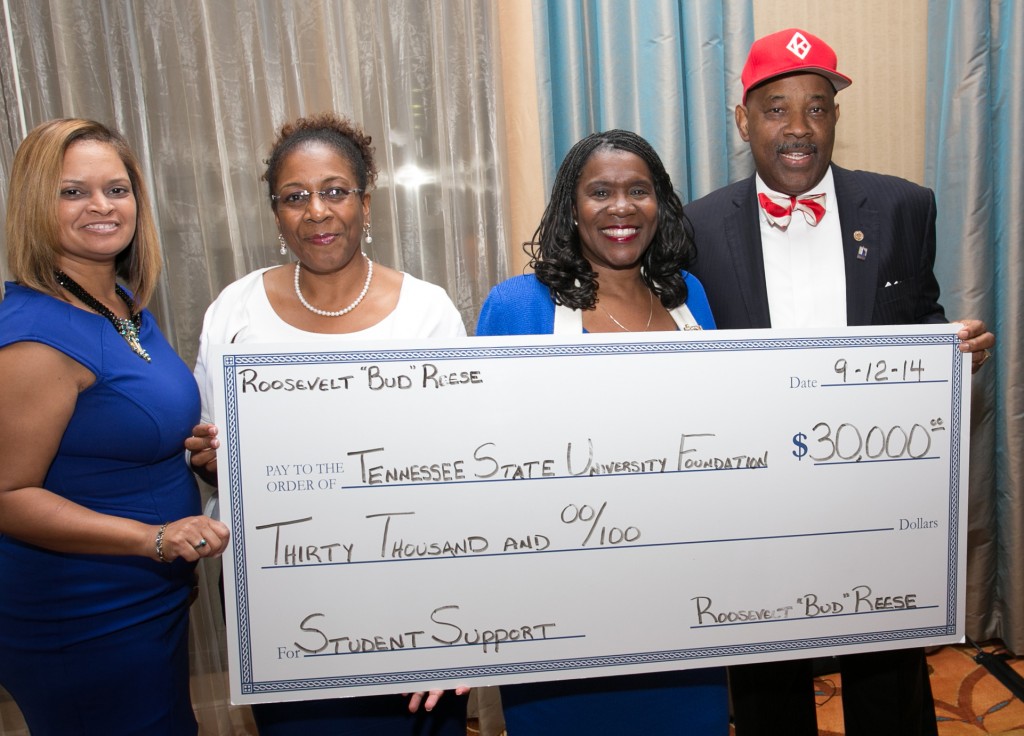
MEMPHIS, Tenn. (TSU News Service) – Just minutes after Tennessee State University President Glenda Glover gave a cheerful report of progress at the institution and thanked alumni and friends for their support, a former student stepped up with a sizable individual donation to his alma mater.
Roosevelt Bud Reese, who earned bachelor’s and master’s degrees at TSU, presented the President with a check for $30,000 from his CMI Foundation for student support, and challenged his fellow alumni to follow suit by giving to the University.
“We applaud your generosity and continued support of TSU,” Dr. Glover told Reese during a reception given by the President Friday night at the Sheraton Hotel in downtown Memphis. “We are grateful for this gift that will be used to provide quality education for our students.”
In addition to Reese, many of his family members have either earned degrees or are current students of TSU. His brother, Stanley, Business Administration; daughter Candice, Business Administration; and son Chris, Criminal Justice, have all graduated. Grandson Shawn is currently an Aviation Management major at TSU.
“Tennessee State University has educated my whole family, and this is just a way to give back,” Reese said. “As a two-time graduate of TSU, I know what quality education can lead to, and I just want to make sure others get the opportunity I was afforded.”
Earlier, President Glover told the gathering of alumni, corporate and individual supporters, friends, faculty and staff that the University was making tremendous progress from improvements in recruitment, retention and graduation, to enhancements in campus safety and emergency management.
“Enrollment for the new academic year is now more that 9,000, and TSU is the only TBR institution that has not experienced a drop in enrollment for two years in a roll,” Dr. Glover told the gathering to a rousing applause. “We have also initiated programs to help students stay in school and graduate on time.”
As a measure to reduce financial burden on students, Dr. Glover reported on the University’s Book Bundle initiative, a digital cutting-edge program aimed at lowering the cost of traditional textbooks. The plan allows freshman and sophomore students to buy “e-books” (downloaded on a tablet) for general education classes, saving students up to $735 per semester.
On retention and graduation, the President spoke about the University’s new Take 15 initiative that encourages students to take at least 15 credits each semester to graduate in four years, as well as the 3+1 program, a dual (college/high school) enrollment program.
Dr. Glover also announced the TSU Community College Initiative aimed at creating a seamless transition of two-year degree holders to TSU. Through this initiative, Dr. Glover said, TSU is reaching out to all 13 community colleges around the state to develop long-lasting partnerships and relationships through “2+2” or dual enrollment efforts.
“Just yesterday, we signed a Student Transfer Partnership Agreement with Southwest Tennessee Community College right here in Memphis, my home town,” she said
In other areas that also drew cheers from the gathering, including state lawmakers and community leaders, the President disclosed that the University has raised more than $9.5 million in giving to the University since she arrived on campus about 18 months ago.
“Our corporate partners, community stakeholders, alumni, faculty, staff and individuals have been very generous and supportive of our plea for support,” said Dr. Glover, who presented a check for $50,000 to her alma mater as her “first order of business” when she became president in 2012, challenging other alumni to follow suit.
“We thank you for your support and for buying into our vision to make TSU the best it can be,” Dr. Glover added.
Department of Media Relations
Tennessee State University
3500 John Merritt Boulevard
Nashville, Tennessee 37209
615.963.5331
About Tennessee State University
With nearly 9,000 students, Tennessee State University is Nashville’s only public university, and is a comprehensive, urban, co-educational, land-grant university offering 42 undergraduate, 24 graduate and seven doctoral programs. TSU has earned a top 20 ranking for Historically Black Colleges and Universities according to U.S. News and World Report, and rated as one of the top universities in the country by Washington Monthly for social mobility, research and community service. Founded in 1912, Tennessee State University celebrated 100 years in Nashville during 2012. Visit the University online at tnstate.edu.
